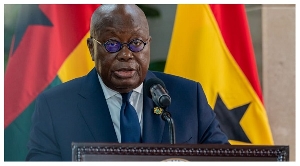Business News of Tuesday, 1 June 2021
Source: thebftonline.com
IEA holds roundtable on youth development
The Institute for Economic Affairs (IEA) has held a roundtable discussion to solicit views from divergent sources on the ills plaguing the youth of the country and to seek suggestions on the best policy pathways required to address these.
The session, which had as its theme ‘Harnessing the potential of Ghanaian Youth’, brought together participants from industry, development agencies, academia, civil society and various youth groups to discuss on the subjects of unemployment; illegal small-scale mining, otherwise called ‘galamsey’; corruption and political violence, particularly as they related to the nation’s youth.
Offering introductory remarks, the Director of Governance and Administration at the Institute, Dr. Samuel Darkwa suggested that the worst deficiency in the formulation of any policy is to exclude input from the group for which it is being designed.
He thus noted that it is regrettable that successive governments have formulated and implemented many youth-targeted policies without their active participation, adding that the frustrations from these perennially unsuccessful policies have snowballed into indifference, on the one hand, and anger on the other.
“There has been a failure of many policies targeted at the youth over the years. This is what happens when policies are made to advance the means of people without their meaningful participation. We have set this up as a platform to discuss issues that the youth collectively face and to proffer solutions to these issues. We hope from this, recommendations can be made to government policymakers for national economic development and democratic advancement,” he said.
As data from statista.com – which collates statistics from the United Nations and the WorldBank, among others – shows that in 2019, Ghana’s median age stood at 21.5 years, whilst the proportion of dependents per 100 active people reached nearly 68% and a youth employment rate of approximately 60%; the subject of youth unemployment took center stage and served as the springboard for the other issues.
The consensus was that youth unemployment transcends basic economics and is a potential security concern as unemployed persons may resort to crime for subsistence. Adjustments to the academic syllabuses to include more industry-relevant courses, encouraging internships and entrepreneurship were some of the recommendations put forward to address youth unemployment.
With unemployment cited as the major causative agent of galamsey, youth-level corruption and political violence, job creation was proposed as the best remedy of these. Additionally, enforcing tougher punitive measures were mooted, as it was held that the current regime fails to serve as a deterrent against these issues.
The discussions were led by a panel which consisted of Deputy Chief Executive Officer Responsible for Programmes at the National Youth Authority, Owusu Ansah; Energy Analyst and youth advocate, Mohammed Mikdad; Civil Engineer and Social Commentator, Abdullai Mahama; and Researcher at the University of Cambridge Faculty of Law, Oliver Barker-Vormawor. It was moderated by a Fellow at the Institute, Dr. Dede Amanor-Wilks.













